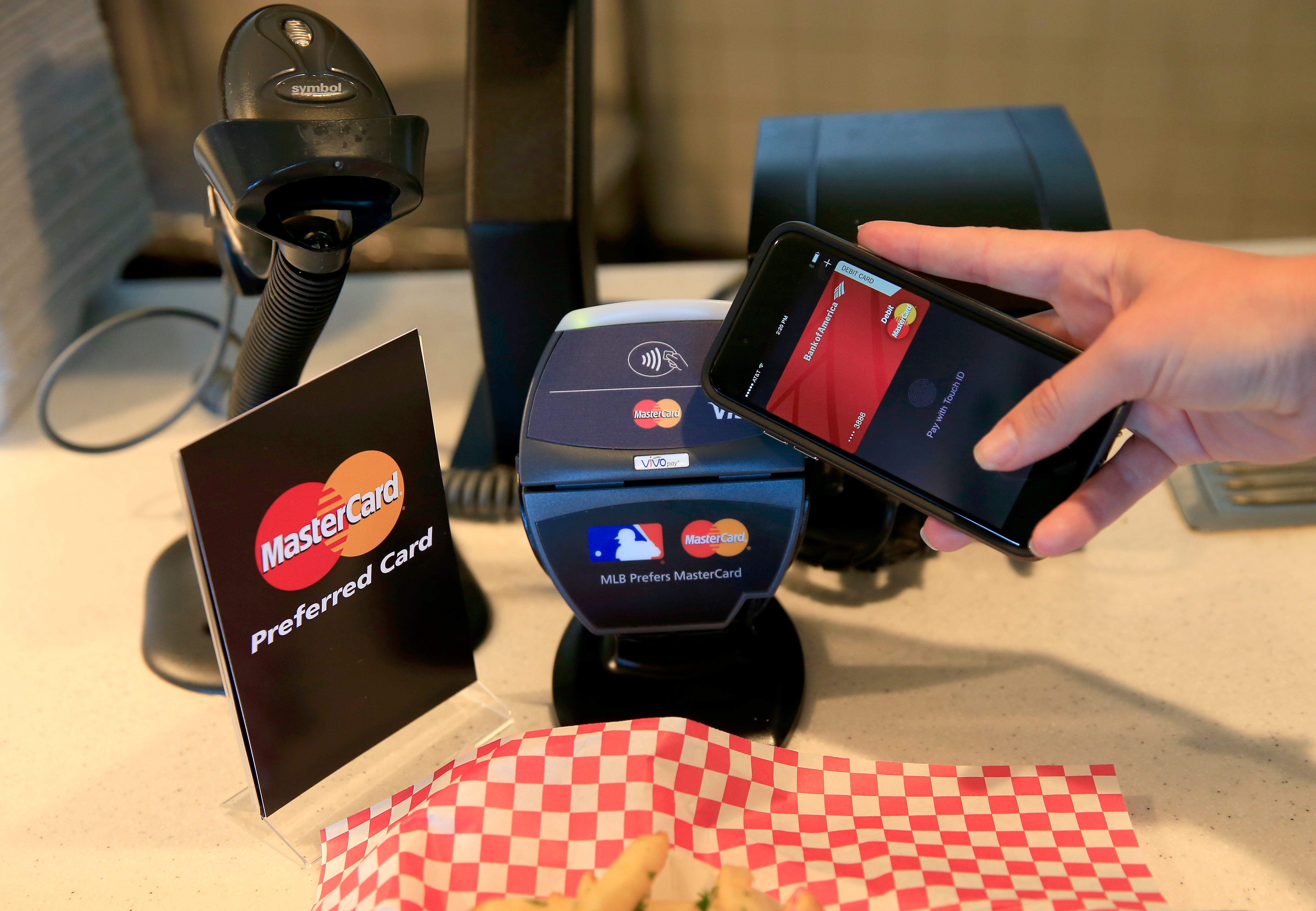Will Apple Pay revolutionize small business?
Part of our series on the future of Main Street

A free daily email with the biggest news stories of the day – and the best features from TheWeek.com
You are now subscribed
Your newsletter sign-up was successful
Since Apple rolled out Apple Pay in October 2014, more than 220,000 retailers have partnered with the company to offer contact-less mobile payments, letting Apple devices wirelessly communicate with checkout machines using near field communication (NFC) technology.
And it's not just nationwide chains like Whole Foods Market or Foot Locker. Small businesses can adopt Apple Pay to ensure their customers' security, attract and cater to a younger clientele, and even revolutionize the way customers shop.
"It's basic economics," said Bruce Freeman, an entrepreneur who teaches at Seton Hall University (and occasionally contributes to The Week). "Any way small business owners can collect money easily, the better off they are."
The Week
Escape your echo chamber. Get the facts behind the news, plus analysis from multiple perspectives.

Sign up for The Week's Free Newsletters
From our morning news briefing to a weekly Good News Newsletter, get the best of The Week delivered directly to your inbox.
From our morning news briefing to a weekly Good News Newsletter, get the best of The Week delivered directly to your inbox.
There are other benefits, too. Unlike credit or debit cards, which make a user's number and identity visible, once a shopper inputs his credit or debit card information into Apple Pay, it gets encrypted and securely stored on a chip inside the mobile device. This heightens security by ensuring that credit or debit card numbers are never shared with merchants, who may be vulnerable to hacks.
Tom Epstein, CEO of Franchise Payment Network, a payment processing company, said that's the biggest reason for small businesses to adopt Apple Pay. "You read about systems getting hacked all the time and hacks come from old technologies," Epstein said. "With NFC and the chip, you're basically encrypting the card data so it's never present at the point of sale."
Epstein also believes that mobile payment systems like Apple Pay will one day become the norm, digitizing the offline shopping experience. "It will tighten the connection between retailers and customers" by bringing digital to in-store shopping. Retailers might be able to collect data on an individual customer's shopping habits and add personalized loyalty programs to entice customers. Or phones could use GPS-like systems such as iBeacon to know when a shopper is nearby and text them with information about sales going on in the store."
"These are all things that are doable today that you will see more and more retailers doing to hold onto their market share," Epstein said.
A free daily email with the biggest news stories of the day – and the best features from TheWeek.com
The cost of installing a modern point-of-sale device that accepts Apple Pay can run from $300 to $3,000, depending on your needs. But any small business that accepts credit cards through a modern point-of-sale device that accepts contact-less payment already has the capability to accept Apple Pay. It only requires a setup process, which is available on the Apple website. Apple does not charge any additional fees to merchants or consumers. It also offers consumers the ability to use both credit and debit cards.
For small businesses that are unsure if Apple Pay will enhance the shopping experience for customers, Aaron Dignan, CEO of Undercurrent, a consultancy for start-ups, suggests paying attention to how many customers come into the store with an Apple device, or asking around to get an idea of the payment method that suits shoppers. "It sends a signal to customers that you're thinking ahead and not shying away from technology," said Dignan.
This isn't the first time a company has attempted a mobile payment system, though. Google Wallet tried to do this several years ago, but Google's business model concerned banks because it required them to share customer shopping data with Google.
Epstein said that the timing is better for Apple, and the company could pave the way for other players in the mobile payment systems market. "Apple is in a better position to begin with," he said. "And they already have the coolness factor."
Amy Kraft is a print and radio reporter based in New York. She reports on science and the environment for publications including Scientific American, Discover, Popular Science, Psychology Today, and Distillations, a podcast out of the Chemical Heritage Foundation. She is currently working on a book of humor essays. You can check out more of her writing on her blog Jaded Bride.